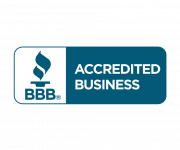Facebook, Twitter, Instagram and other social media networks have become the tools for marketing in business; so much so, that any business without at least one social media profile is lagging. The widespread use of social media allows for a connectivity with companies and the target audiences that remains unsurpassed. It is for this reason that companies should set not only business objectives but social media objectives as well when assessing the effectiveness of marketing and business strategizing.
With 3 billion internet users, more than half of which are active on social media, companies and brands should understand the distinct benefits that being “social” brings to business.
Social Media Benefits
Consumer Insight
Being on social media gives businesses access to data about their target audiences; providing answers to questions like: Who are my customers? What are their likes and dislikes? How do they engage with my brand? The analytics built into social media platforms provides this critical consumer insight, listening for these answers through the communication of social media users. This data enables companies and brands to engage with consumers, providing informative feedback.
Increased Brand Awareness
Companies with a social media presence are subject to increased brand awareness as being online exposes them to a greater audience, a global audience in fact. Research has found that people who follow the social platforms of brands are more likely to become buyers. A presence on social media allows businesses to reach new audiences while also building loyalty among current customers.
Building Brand Loyalty
An active online presence leads to customer loyalty. Being active on social media, engaging and interacting with your audience contributes to relationship building which, in time, will create consumer opportunities. Gaining the trust of your audiences builds brand loyalty.
The caveat for businesses being creating content that is beneficial to social followers and not blatant self-promotion.
Customer Care
Customer service is key in business and social media also plays a key role in providing quality customer care. If a company or brand has a social media presence it facilitates customer contact opportunities. Social media allows customers to ask questions, raise complaints and provide feedback creating a conversation about your brand or service. By monitoring the online chatter, businesses can quickly address any issues that may arise.
Social media is so important in customer care that many companies now have separate accounts that are dedicated to customer service inquiries.
Harnessing the Power of Social Media for Business
The benefits of using social media for business can be numerous if business goals and social media strategy are aligned.
Having a social media strategy is important to business marketing. Posting for the mere sake of posting will have no benefit to your business. It is necessary to outline a clear plan in order to maximize on consumer opportunities and provide quality service that creates a positive experience for the customer and exceeds expectations.
The following are points to take into consideration when outlining a social media marketing strategy:
Define Objectives
Determine what your business objectives are in order to build your social media strategy around them. It is important to define clear business goals, both short-term and long-term.
Some of the objectives may include: increased sales and profit increases, customer retention, customer care, and market expansion. For each of these objectives, a social media strategy exists. Increased sales can stem from social media advertising campaigns; customer loyalty and retention can be achieved through active engagement on social media which in turn can improve customer satisfaction. Metrics built into social media platforms can assist with market expansion by providing valuable data on target audiences (who they are, where are they located etc.)
Decide What’s Best for Your Business
Once you’ve defined your objectives they must be aligned with the appropriate social media strategies to best suit the needs of the brand. In order to align the two a business must: assess a starting point; set clear goals; select the most relevant platforms; create appropriate content; and track return on investment.
This exercise is extremely important and requires the implementation of processes which is why it is often outsourced to a social media marketing manager or agency.
Whether a company undertakes this directly or sources it out, this is what is typically involved:
Assess a Starting Point
This can be achieved by doing an audit of current social media accounts and practices which includes asking questions like: Who are my customers? Where are they located? How can I target them?
In addition, it is important to consider the objectives for social media and how those objectives will be evaluated; who will be responsible for managing social media and evaluating its effectiveness.
Set Clear Goals
Whether short-term or long-term, the goals set for social media must be clear and related to areas such as: brand awareness; customer engagement; lead generation; and content distribution. Setting clear goals also means being concise so the number should be limited to two to three goals per social platform to remain focused and assess effectiveness. One of the best practices when setting goals is to ensure they are SMART (Specific, Measurable, Achievable, Realistic and Time-bound).
Metrics should also be put in place to track and benchmark the success of your goals. Those metrics should also be clearly defined, for example, if the goal is to increase brand awareness it should be defined by specifics i.e. an increased percentage of followers on an account within a certain timeframe.
Select the Most Relevant Platforms
Having a presence on social media is important but the benefits to your business will come from being on the most relevant platforms. It is not necessary to be on every existing network, in fact a high performance on one or two is much better than barely performing on all of them.
The most recognized platforms include: Facebook, Twitter, LinkedIn, Instagram and Pinterest, each of which is most effective in a different area. The business objectives they are best at are the following:
Facebook: with 2 billion active users globally, this platform is by far the largest and it offers the most advanced advertising options that allows businesses to specifically target and audience.
Twitter: is an ideal network for relationship building. While its user numbers are lower than Facebook it has a higher volume of content which facilitates conversation and making it useful for customer service.
LinkedIn: this social media network is geared for business to business interaction and ideal for those looking to make professional and industry contacts.
Instagram: with a user base made up primarily of millennials this social network is ideal for promoting businesses that have visual appeal i.e. photography or food
Pinterest: this platform is like Instagram in that it is based on largely visual data with the distinct difference being a slightly older user demographic
Create Appropriate Content
When it comes to social media content is king which is why it is extremely important to create relevant and appropriate content. Good content is what engages an audience and encourages interaction which makes its curation something that should be well thought out and planned.
Making use of scheduling tools is also beneficial for publishing content at the most opportune times for viewing by your target market. A social media marketing manager or agency will have access to these tools and can help establish a content calendar for posting as well.
Track Return on Investment
Tracking ROI on social media is relatively straightforward thanks to the analytics and metrics that each platform has built into it. Making use of the data provided on your social media accounts will assist with analyzing the effectiveness of a marketing campaign.
Are Your Business and Social Media in Sync?
Social media continues to evolve which is why it is important to assess your business objectives to keep aligning them with your social media marketing strategies. Setting goals and evaluating them helps provide direction to your business, fuelling it for growth.
The experts at Social Know How can assist with keeping your business and your social media in sync.





